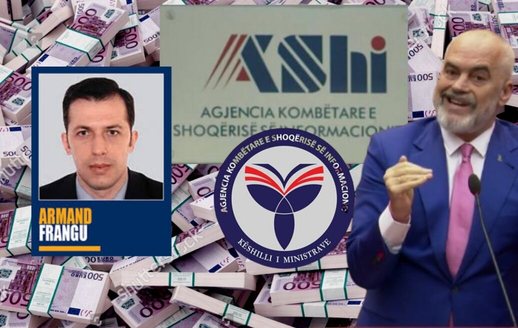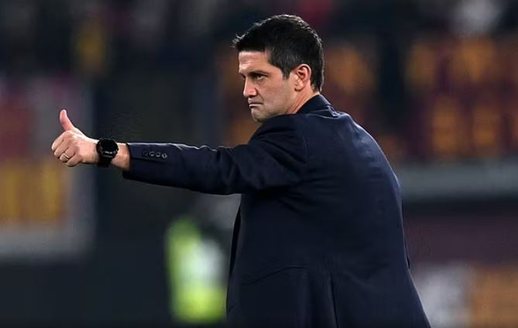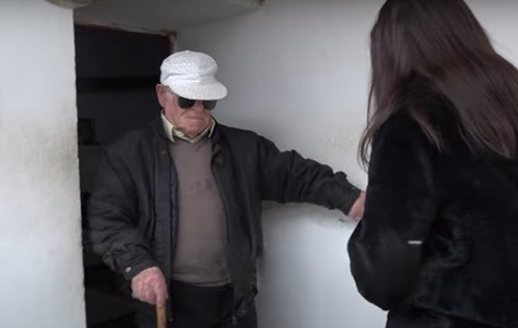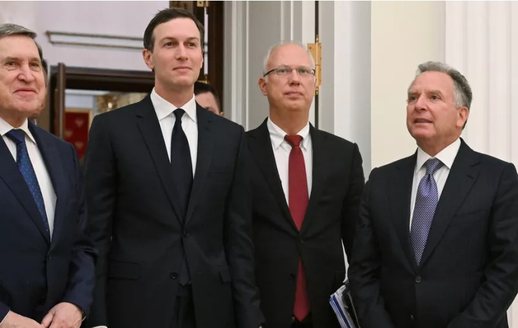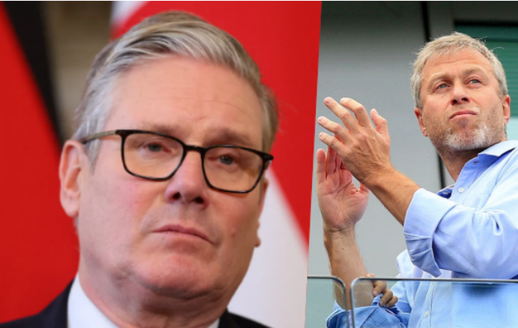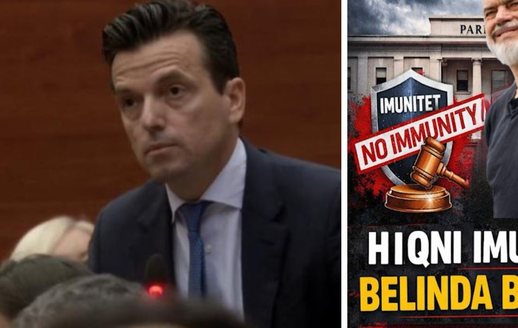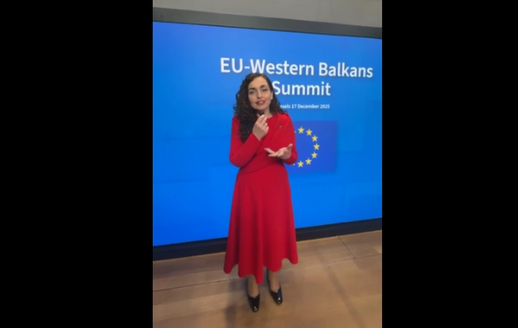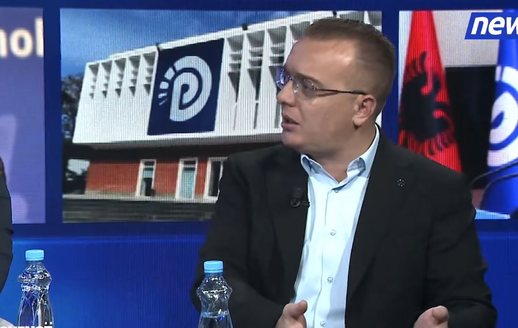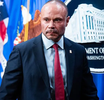
REL Analysis: Is there a chance to resume the Kosovo-Serbia dialogue in the current circumstances?

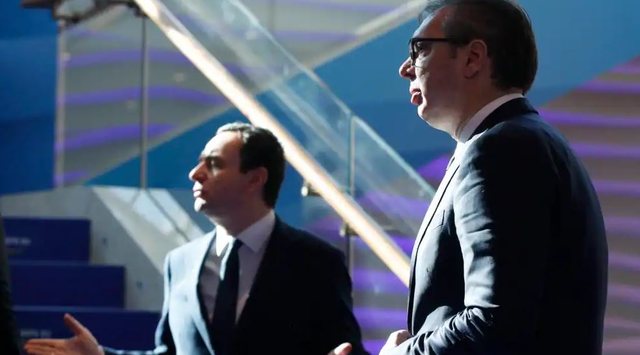
The European Union's foreign policy chief said this week that "now is the time for reengagement" by Kosovo and Serbia in the Brussels-mediated dialogue to normalize relations between the two countries.
Kaja Kallas' message, with the warning that dialogue is a necessity for them to move towards European integration, was given on the eve of her visit to the capitals of the two countries, on Wednesday and Thursday.
Later, in Belgrade, she said she plans to invite representatives from both countries to Brussels “as soon as possible” “to discuss the steps forward” – without mentioning who exactly will receive the invitation.
But, experts on political developments in Pristina and Belgrade are pessimistic about whether a return to political-level dialogue between the two countries is possible for now.
After the parliamentary elections of February 9, Kosovo has still not managed to complete the constitution of the Assembly, which would pave the way for the process of creating a new government.
Meanwhile, Serbia has been facing numerous protests and political turmoil in recent months.
Legitimacy of the negotiating parties
Afrim Hoti, professor of Law and International Relations at the University of Pristina, tells Radio Free Europe that dialogue is meaningless if it is not led by leaders who have credentials and legitimacy in the respective countries.
The main problem, according to him, is related to the fact that Kosovo is led by an incumbent government.
In accordance with the Constitution of Kosovo, the dialogue with Serbia is led solely by the country's government. Meanwhile, in this process, the Serbian side is led by its president.
"I do not believe that we will have a round or attempt for an eventual meeting, at least not until a new government is established in Kosovo," Hoti emphasizes.
On the other hand, after an incident in Novi Sad on November 1 last year, which claimed the lives of 16 people, authorities in Serbia faced protests for several months.
The government there, led by Miloš Vučević, resigned and was replaced by a governing cabinet currently led by Đuro Macut, who, like his predecessor, is part of the Serbian Progressive Party, founded by the current president of Serbia, Aleksandar Vučić.
Dusan Janjic, from the Belgrade Forum for Ethnic Relations, tells Radio Free Europe that developments in recent months in Serbia have seriously shaken Vucic's power.
"There is no legitimate government in Serbia, only legal ones," says Janjic, adding that the insistence of the EU High Representative for Foreign Affairs and Security Policy, Kallas, to resume the dialogue now, seems like a bureaucratic approach, with the slogan "it must start."
“Mirë që ka ardhur [Kallas, në Beograd dhe në Prishtinë], që të shohë se negociuesit me të cilët bisedon janë ‘rrëfim bosh’, dhe të nisë ta përgatisë aparatin e saj dhe veten për një metodologji të negociatave. Në rast të kundërt, do ta humbë mandatin e lehtësueses [së dialogut]”, vlerëson Janjiq.
Të mërkurën, Vuçiq tha se “Serbia është e vendosur për dialog konstruktiv me ndërmjetësimin e BE-së”.
Por, ai shtoi se ia ka përkujtuar kryediplomates Kallas se formimi i Asociacionit të komunave me shumicë serbe nga pala kosovare është “një parakusht për përparim të mëtejmë në dialog”.
Gatishmërinë e Kosovës për të marrë pjesë në procesin e dialogut e ka shprehur edhe presidentja Vjosa Osmani, por ajo i ka bërë thirrje BE-së që, paraprakisht, “duhet të flasim për heqjen e masave nga ana e BE-së, sepse kjo e dëmton edhe vetë kredibilitetin e BE-së”.
BE-ja vendosi masa ndëshkuese ndaj Kosovës më 2023 – pas rritjes së tensioneve në veri të vendit. Masat e tilla vazhdojnë të jenë në fuqi.
Në prill, Kallas bëri me dije se BE-ja është duke i zbërthyer gabimet në dialogun e Brukselit mes Kosovës dhe Serbisë, në mënyrë që t’i japë gjallëri procesit.
Duke iu referuar kësaj deklarate, Hoti shpreh mendimin se nuk ka shumë tema për të cilat mund të bisedohet, kurdo që të rinisë dialogu në Bruksel.
Sipas tij, problem mbetet zbatimi i marrëveshjeve të arritura ndërmjet dy vendeve, duke përfshirë atë kryesoren, Marrëveshjen për rrugën drejt normalizimit të raporteve, e njohur si Marrëveshja e Ohrit.
“Fundja, nëse ne kemi në sfond një listë të marrëveshjeve, për të cilat është dhënë pajtimi nga udhëheqjet përkatëse, dhe nuk kemi zbatimin e tyre praktik, vazhdimi i procesit negociues del i panevojshëm, i palogjikshëm, nuk ka racionalitet”, thotë Hoti.
Ai pret që strategjia e re e Kallasit në fazën e ardhshme të dialogut të jetë zbatimi i marrëveshjeve të deritashme, duke ushtruar presion të balancuar tek të dyja palët.
Edhe Janjiq shpreson që vazhdimi eventual i procesit, kurdo që të ndodhë gjatë mandatit të Kallasit, të mos jetë përsëritje e qasjes së “menaxhimit të konfliktit”, siç ishte, sipas tij, gjatë mandatit të pararendësit të saj, Josep Borrell.
“Shpresoj që ata [BE-ja] do të mendojnë seriozisht dhe do të nisen rrugës që do ta ndjekin amerikanët. Kjo nënkupton: tavolina të rrumbullakëta, procese të shkurtuara të bisedimeve dhe, më e rëndësishmja, të hapin ‘Zyrën për zbatim’”, shprehet Janjiq.
“Zyra për zbatim”, sipas tij, do të mbikëqyrte zbatimin e të gjitha marrëveshjeve të arritura deri më tash në procesin e dialogut, dhe do t’i raportonte BE-së për rezultatet.
Megjithatë, ai nuk pret që procesi të rinisë deri në fund të këtij viti, pa arritjen e stabilizimit të rrethanave dhe skenave politike në Kosovë dhe në Serbi./REL
Happening now...

83 mandates are not immunity for Rama's friends
ideas
top
Alfa recipes
TRENDING 
services
- POLICE129
- STREET POLICE126
- AMBULANCE112
- FIREFIGHTER128




